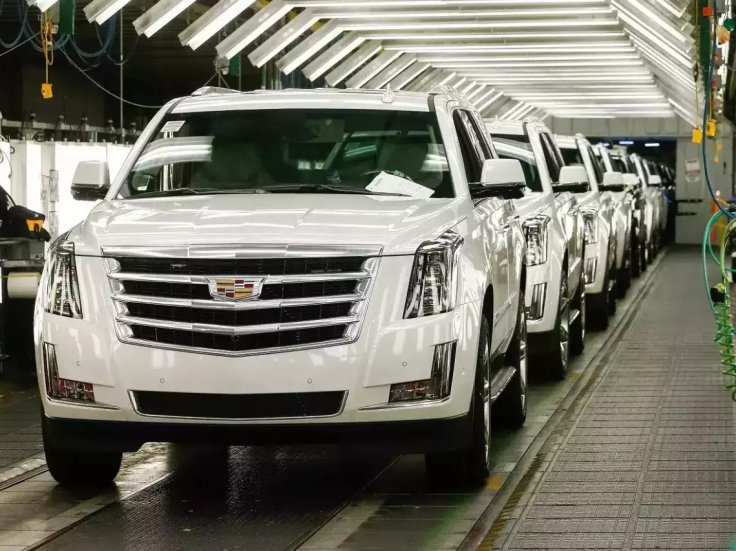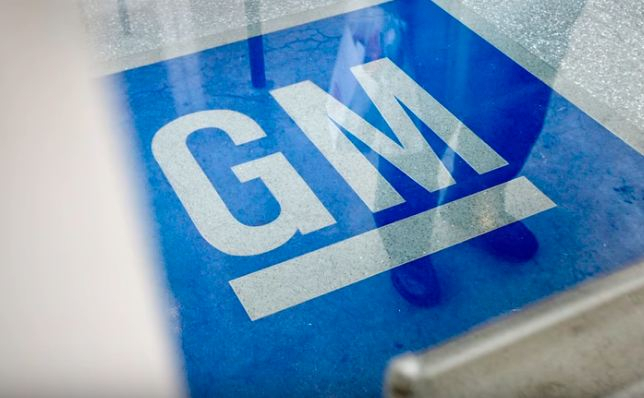General Motors is making a shift in its U.S.-based electric vehicle plans. The company is temporarily laying off 200 employees at Factory Zero, its Detroit-based plant dedicated to EVs. The carmaker said that the layoffs will not affect the facility's production, the Daily Mail reported.
"Factory ZERO will adjust production to align with market dynamics. Impacted employees will be placed on a temporary layoff and may be eligible for subpay and benefits in accordance with the GM-UAW national contract," the company said in a statement. A company representative said that the production adjustment is intended to "align with market dynamics" and is not connected to the recently announced auto tariffs.
General Motors Strategic Change

Facility Zero produces GM's premium electric models, including the Chevy Silverado EV, GMC Sierra EV, Hummer EV SUV and truck, as well as the Escalade IQ. Before the temporary layoffs, the company reported having over 4,500 workers at the facility.
The move affects just over 4 percent of the plant's workforce. GM insists the layoffs are not connected to the Trump administration's tariffs, though the move comes at a time when political pressure is mounting to boost U.S. manufacturing.
The company has become the second of the Big Three American automakers to reveal domestic job cuts following the rollout of the White House's 25 percent tariffs on automobiles.
Stellantis — which owns iconic U.S. brands such as Dodge, Jeep, Chrysler, and Ram — recently fired 900 workers across five American plants.
The company, which makes Jeep vehicles, directly blamed the layoffs on Trump's tariff policies, explaining that the affected U.S. plants produced components for vehicles assembled in Canada and Mexico.
Cars built through this cross-border manufacturing process — involving thousands of American workers in stamping and powertrain production — now risk being hit with multiple tariffs, since parts are shipped back and forth between the U.S., Mexico, and Canada.
GM and Stellantis aren't alone in making adjustments.
Automakers around the world have begun restructuring their U.S. operations in response to the new tariffs. Volkswagen, the world's second-largest carmaker, announced it would add an "import fee" line to its vehicle price stickers to ensure transparency for customers.
Automakers Feel the Heat of Trump's Tariffs

The change will place the direct cost of Trump's tariffs alongside other vehicle details like optional features (such as heated seats or a panoramic sunroof), fuel efficiency estimates, and taxes.
Volkswagen also temporarily held back some of its luxury Audi models at U.S. ports, though an Audi representative confirmed the vehicles have now been released into the American market. They declined to say whether the prices of those cars had increased.
Meanwhile, Ford has introduced a promotional sales event offering employee discount pricing to regular American consumers. The company, which currently has a larger inventory of vehicles on dealership lots than the industry average, said the deal is available through June 2.
GM, too, has rolled out major adjustments in response to the tariffs. The automaker announced plans to ramp up production of its premium pickup trucks manufactured in the U.S.
CEO Mary Barra said that the company is actively balancing its lineup of gasoline and electric vehicles to better meet demand in the American market. Earlier this year, GM discontinued the Cadillac XT4—one of its top-selling models—to make room for the production of the upcoming electric Chevy Bolt.
Still, if interest in EVs declines, Barra has expressed confidence in GM's lineup of traditional gas-powered vehicles.









